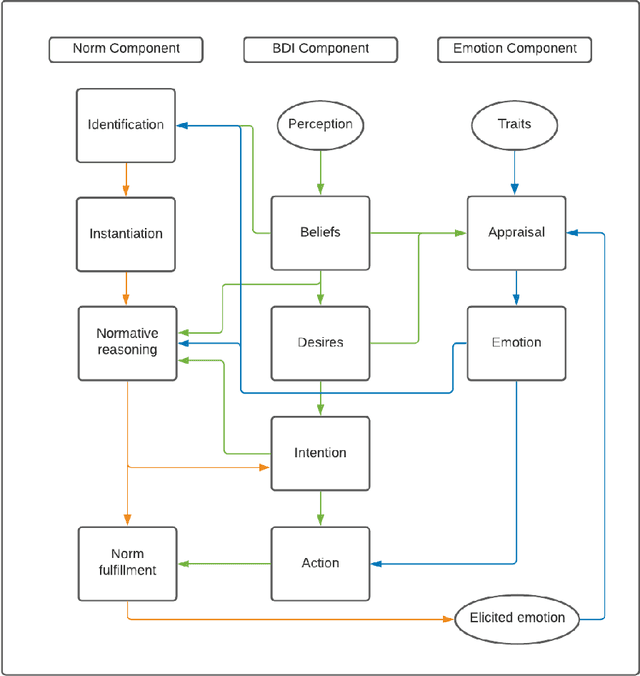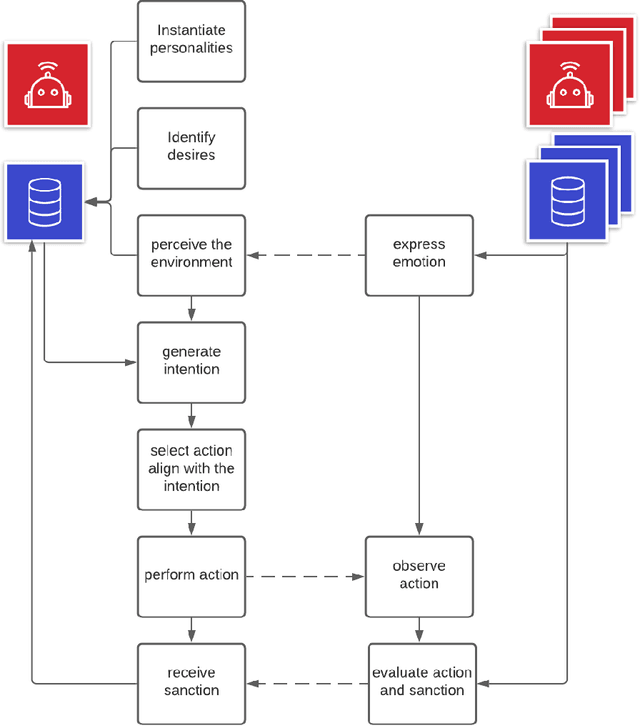Sz-Ting Tzeng
North Carolina State University
Rethinking How AI Embeds and Adapts to Human Values: Challenges and Opportunities
Aug 23, 2025Abstract:The concepts of ``human-centered AI'' and ``value-based decision'' have gained significant attention in both research and industry. However, many critical aspects remain underexplored and require further investigation. In particular, there is a need to understand how systems incorporate human values, how humans can identify these values within systems, and how to minimize the risks of harm or unintended consequences. In this paper, we highlight the need to rethink how we frame value alignment and assert that value alignment should move beyond static and singular conceptions of values. We argue that AI systems should implement long-term reasoning and remain adaptable to evolving values. Furthermore, value alignment requires more theories to address the full spectrum of human values. Since values often vary among individuals or groups, multi-agent systems provide the right framework for navigating pluralism, conflict, and inter-agent reasoning about values. We identify the challenges associated with value alignment and indicate directions for advancing value alignment research. In addition, we broadly discuss diverse perspectives of value alignment, from design methodologies to practical applications.
Value-Based Rationales Improve Social Experience: A Multiagent Simulation Study
Aug 04, 2024



Abstract:We propose Exanna, a framework to realize agents that incorporate values in decision making. An Exannaagent considers the values of itself and others when providing rationales for its actions and evaluating the rationales provided by others. Via multiagent simulation, we demonstrate that considering values in decision making and producing rationales, especially for norm-deviating actions, leads to (1) higher conflict resolution, (2) better social experience, (3) higher privacy, and (4) higher flexibility.
Norm Enforcement with a Soft Touch: Faster Emergence, Happier Agents
Jan 29, 2024Abstract:A multiagent system can be viewed as a society of autonomous agents, whose interactions can be effectively regulated via social norms. In general, the norms of a society are not hardcoded but emerge from the agents' interactions. Specifically, how the agents in a society react to each other's behavior and respond to the reactions of others determines which norms emerge in the society. We think of these reactions by an agent to the satisfactory or unsatisfactory behaviors of another agent as communications from the first agent to the second agent. Understanding these communications is a kind of social intelligence: these communications provide natural drivers for norm emergence by pushing agents toward certain behaviors, which can become established as norms. Whereas it is well-known that sanctioning can lead to the emergence of norms, we posit that a broader kind of social intelligence can prove more effective in promoting cooperation in a multiagent system. Accordingly, we develop Nest, a framework that models social intelligence in the form of a wider variety of communications and understanding of them than in previous work. To evaluate Nest, we develop a simulated pandemic environment and conduct simulation experiments to compare Nest with baselines considering a combination of three kinds of social communication: sanction, tell, and hint. We find that societies formed of Nest agents achieve norms faster; moreover, Nest agents effectively avoid undesirable consequences, which are negative sanctions and deviation from goals, and yield higher satisfaction for themselves than baseline agents despite requiring only an equivalent amount of information.
Noe: Norms Emergence and Robustness Based on Emotions in Multiagent Systems
Apr 30, 2021



Abstract:Social norms characterize collective and acceptable group conducts in human society. Furthermore, some social norms emerge from interactions of agents or humans. To achieve agent autonomy and make norm satisfaction explainable, we include emotions into the normative reasoning process, which evaluate whether to comply or violate a norm. Specifically, before selecting an action to execute, an agent observes the environment and infer the state and consequences with its internal states after norm satisfaction or violation of a social norm. Both norm satisfaction and violation provoke further emotions, and the subsequent emotions affect norm enforcement. This paper investigates how modeling emotions affect the emergence and robustness of social norms via social simulation experiments. We find that an ability in agents to consider emotional responses to the outcomes of norm satisfaction and violation (1) promote norm compliance; and (2) improve societal welfare.
 Add to Chrome
Add to Chrome Add to Firefox
Add to Firefox Add to Edge
Add to Edge